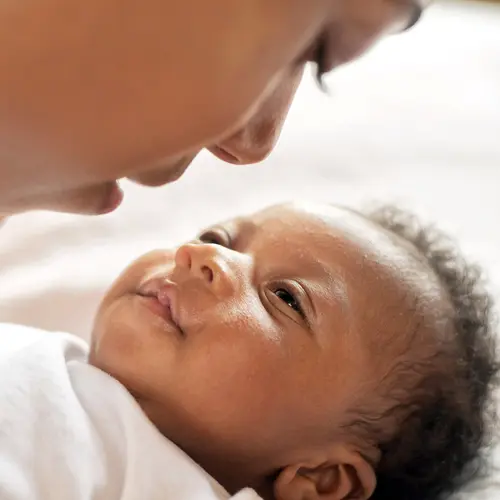If you have a baby, you’re probably concerned about making sure they have enough water and nutrients to stay healthy. Even though your baby drinks breast milk or formula, is that enough to keep them hydrated? Yes. Here’s what you need to know.
How Infants Stay Hydrated
As an adult, water is the most hydrating thing you can drink. It quenches your thirst and helps all of your systems stay balanced.
But children under a year old don’t need water like adults do. It can actually be dangerous for them. Babies get all their hydration from breast milk or formula.
When Babies Can Start Drinking Water
A baby should drink only breast milk or formula until they’re six months old. It has all the hydration and nutrition they need in the early months.
Even when you start giving them purees or table food at around 6 months of age, breast milk and formula are still more important than water. But you can begin to introduce it.
When babies are between 6 and 12 months of age, breast milk or formula continues to be a priority over water. But if you offer breast milk or formula first, you can then offer water, 2-3 ounces at a time. At this age, 4-8 ounces a day of water is enough. More than that may lead to water intoxication.
Making Sure Water Is Baby-Safe
Before using water to mix baby formula or offering a baby water for the first time, consider testing your tap water. While tap water may have fluoride that helps prevent tooth decay, it could also contain levels of lead that are unsafe for babies.
Most tap water in the U.S. is safe, with a few exceptions:
- If you have untested well water.
- If your water source has recently been contaminated.
- If your baby has low immunity.
If you’re worried about lead exposure and traces of chemicals in your water, install a filtration system or use distilled water instead which can be easily purchased.
Considerations for mixing formula with water. If you use tap water to mix formula, mix only one bottle at a time. Don’t use tap water to mix formula in bulk amounts.
A similar rule applies to water that you’ve boiled. Refrigerate boiled water within an hour, and throw it away if you don’t use it within 24 hours. Always allow the water to cool completely before mixing the formula. Hot water can burn your baby.
When you purchase formula, carefully follow the instructions on the container for mixing it with water. Instructions vary by brand. This will ensure your baby gets the right amount of nutrients and hydration.
Mixing in too much formula may lead to constipation or dehydration. Mixing in too little formula may lead to malnutrition or water intoxication.
Risks of Water for Infants
Drinking too much water at a young age is very dangerous. Water causes an imbalance in sodium levels that may lead to:
- Seizures
- Brain damage
- Coma
- Death
Water intoxication leads to changes in behavior such as:
- Confusion
- Drowsiness
- Muscle cramps and twitching
- Nausea and vomiting
- Difficulty breathing
- Weakness
Watch for signs of water intoxication and call your doctor immediately if you have any concerns.
Water as Your Baby Grows
Between the ages of 1 and 3, your toddler needs 4 cups of liquid per day. This is a transitional period that should include both water and breastmilk or formula. The older your child gets, the more water they need. There are several ways you can encourage your older child to drink enough water.
Flavor water with fresh fruit. Water is healthier than juice since many children’s juices are full of sugar. If your child prefers the taste of juice, use fresh fruit to flavor their water. Lemon, berries, mint, and cucumber are great additions.
Offer more fruits and vegetables. Encourage your child to eat more fruits and vegetables with high water content. These help them stay hydrated without forcing them to drink more water than they want. Hydrating vegetables include cucumber, tomato, zucchini, celery, and iceberg lettuce. Hydrating fruits include strawberries, watermelon, blueberries, cantaloupe, and grapefruit.
Make creative ice cubes and popsicles. Puree your fruit of choice with water and freeze it into ice cubes or popsicle molds.
Provide special drinkware. Use a fancy cup with favorite colors or characters. When you find ways to make water fun, your child is more likely to enjoy drinking it.


